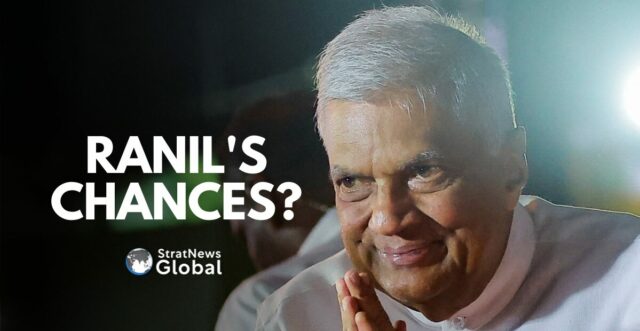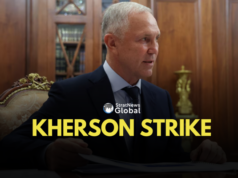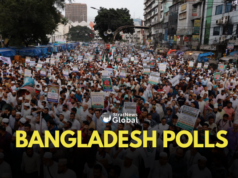President Ranil Wickremesinghe charted a path for Sri Lanka out of its worst financial crisis in decades, but the austerity measures that were key to this recovery may hinder his bid to return to his job in Saturday’s presidential election.
The South Asian island nation’s economy went into free fall two years ago after it ran into a severe dollar crisis, sending its currency and markets crashing and pushing it into its first debt default in history.
Wickremesinghe, a six-time prime minister, was elected by parliament to become president in 2022 after mass protests triggered by the crisis ousted his predecessor Gotabaya Rajapaksa, who was forced to flee the country and later resign.
IMF Bailout
He swiftly secured a $2.9 billion International Monetary Fund (IMF) bailout and kick-started negotiations with creditors, eventually securing a $25 billion debt rework just two days ahead of Saturday’s vote.
The economy is expected to grow at 3% this year after contracting 7.3% during the height of the crisis.
But this recovery came at a massive cost to voters.
Polls show Wickremesinghe heads into the vote trailing his main rivals – opposition leader Sajith Premadasa and Marxist-leaning politician Anura Kumara Dissanayke.
“I have shown the people that when I take up a task I complete it. Now it’s up to you to decide what kind of path we should take from Sunday,” Wickremesinghe said at a rally on the last day of campaigning.
To raise funds and cut costs, the government raised taxes, power tariffs, and interest rates, squeezing the middle class and sending some 7 million people into poverty by the end of 2023, according to the latest government data.
Rising Poverty And Migration
More than 600,000 people migrated from the island nation during the last two years, the data shows.
“What Ranil Wickremesinghe did was transfer the largest burden of the economic crisis onto the poor and the middle class through a very unjust taxation policy, so there is no equity of sharing the burden of this crisis,” said political scientist Jayadeva Uyangoda, a constitutional expert and a professor emeritus at the University of Colombo.
Born into a prominent family of politicians and businessmen with large interests in the media, the then 29-year-old Wickremesinghe became the country’s youngest cabinet minister in 1978, serving under his uncle President J.R. Jayewardene.
Wickremesinghe’s 2.0?
In 1994, following assassinations that wiped out several of his senior colleagues, Wickremesinghe became leader of the United National Party.
Wickremesinghe’s refusal to relinquish party leadership led to the formation of the Samagi Jana Balawegaya (SJB), whose leader Premadasa is also a presidential contender this time.
If he returns to office, Wickremesinghe has promised to stay the course to push Sri Lanka into a stronger recovery.
But such a path requires increasing taxes, revamping state companies, and meeting debt repayments that is unlikely to win him stronger favour with parts of the populace, analysts say.
“The main criticism of the government is that it has not shown enough sensitivity or empathy towards the pressing problem of debt restructuring and making sure that the burden of that adjustment is not going to fall on the people least able to bear it,” said Paikiasothy Saravanamuttu, head of Colombo think tank Centre for Policy Alternatives.





